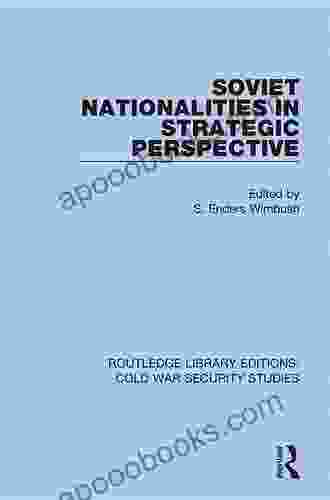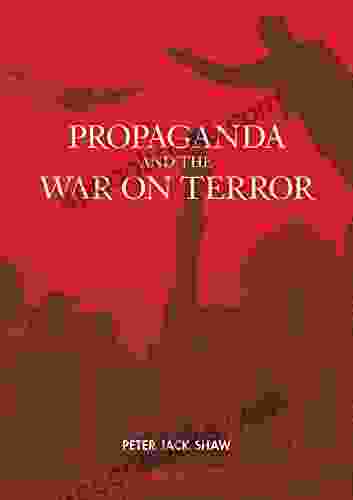Soviet Nationalities in Strategic Perspective: Insights into a Complex History

: The Soviet Nationality Puzzle
The Soviet Union, a vast and diverse patchwork of nations, presented a complex challenge in terms of nationality management. The Bolsheviks, upon seizing power in 1917, inherited a multi-ethnic empire spanning eleven time zones and encompassing over 180 distinct nationalities. Understanding the Soviet approach to nationalities is not only vital for comprehending the history of the USSR but also for gaining insights into the dynamics of multinational states and the challenges of managing diversity in the modern world.
Motivations Behind Soviet Nationality Policy
The Soviet leadership's motivations for nationality policy were multifaceted, combining ideological, geopolitical, and pragmatic considerations. Ideologically, the Bolsheviks adhered to the Marxist-Leninist belief in the eventual withering away of national distinctions under communism. However, in the meantime, they recognized the need to manage national diversity in a way that would maintain the stability and unity of the Soviet state.
4.2 out of 5
| Language | : | English |
| File size | : | 127257 KB |
| Screen Reader | : | Supported |
| Print length | : | 284 pages |
Geopolitically, the Soviet Union faced threats from both the West and the East. Maintaining control over its vast bFree Downloadlands, inhabited by non-Russian nationalities, was seen as crucial for national security. By granting these nationalities limited autonomy and cultural recognition, the Soviet leadership aimed to prevent separatist movements and cultivate loyalty to the USSR.
Pragmatically, the Soviet government sought to harness the resources and manpower of its diverse population for economic development and industrialization. By integrating non-Russian nationalities into the Soviet economy and providing them with opportunities for education and advancement, the leadership aimed to build a more prosperous and productive society.
Strategies of Soviet Nationality Management
The Soviet Union employed a range of strategies to manage its nationalities, including:
- Territorial autonomy: Non-Russian nationalities were granted their own republics, autonomous regions, and national districts within the federal structure of the USSR. These entities had their own governments, parliaments, and cultural institutions, allowing for some degree of self-governance and preservation of national identity.
- Cultural recognition: The Soviet government encouraged the development and preservation of non-Russian languages, cultures, and traditions. Schools, universities, and cultural organizations were established to promote national languages and arts, fostering a sense of cultural pride and distinctness.
- Economic integration: The Soviet Union pursued a policy of economic integration, aiming to develop the economies of non-Russian republics and regions. This involved massive investments in infrastructure, industry, and agriculture, leading to improved living standards and increased economic interdependence.
- Political representation: Non-Russian nationalities were represented in the highest levels of the Soviet government and Communist Party. This included representation in the Council of Ministers, the Presidium of the Supreme Soviet, and the Politburo, ensuring that their interests and concerns were heard at the decision-making level.
Consequences of Soviet Nationality Policy
The Soviet Union's nationality policy had a profound impact on the development of the USSR and its constituent republics. Some of the consequences included:
- Maintenance of stability: The Soviet government's nationality policies generally succeeded in maintaining stability and preventing widespread separatist movements. The vast majority of non-Russian nationalities remained loyal to the USSR, even in the face of economic and political challenges.
- Cultural preservation: Soviet nationality policy supported the preservation and development of non-Russian languages, cultures, and traditions. This led to a flourishing of national literatures, arts, and cultural institutions, contributing to a sense of national identity and pride.
- Economic modernization: The Soviet Union's economic integration policies led to significant modernization and industrialization in non-Russian republics. This resulted in improved living standards, increased urbanization, and greater economic interdependence among the various nationalities.
- Russification: Despite the official policy of cultural recognition, there was a gradual process of Russification in the Soviet Union. The Russian language became the lingua franca of government, education, and media, leading to a decline in the use of some non-Russian languages.
- National tensions: While the Soviet government generally succeeded in preventing large-scale separatist movements, there were occasional outbreaks of national unrest and tensions between different nationalities. These tensions were often rooted in economic inequalities, cultural differences, and historical grievances.
Legacy of Soviet Nationality Policy
The legacy of Soviet nationality policy is complex and contested. Some argue that the Soviet Union's approach to nationalities was successful in maintaining stability and fostering a sense of unity among its diverse population. Others contend that it led to the suppression of national identities, Russification, and ultimately contributed to the collapse of the USSR.
Nonetheless, the Soviet experience with nationality management provides valuable lessons for contemporary states grappling with the challenges of managing diversity. It highlights the importance of finding a balance between cultural recognition, economic integration, and political representation in Free Download to maintain stability and promote harmonious relations among different national groups.
: Understanding the Complexities of Soviet Nationalities
'Soviet Nationalities in Strategic Perspective' offers a comprehensive and nuanced analysis of the Soviet Union's nationality policies, motivations, strategies, and consequences. This book is essential reading for anyone seeking to understand the complexities of this crucial aspect of Soviet history and its implications for multinational states today. By delving into the intricate tapestry of Soviet nationality management, we gain valuable insights into the challenges and opportunities of managing diversity in the modern world.
4.2 out of 5
| Language | : | English |
| File size | : | 127257 KB |
| Screen Reader | : | Supported |
| Print length | : | 284 pages |
Do you want to contribute by writing guest posts on this blog?
Please contact us and send us a resume of previous articles that you have written.
 Book
Book Novel
Novel Page
Page Chapter
Chapter Text
Text Story
Story Genre
Genre Reader
Reader Library
Library Paperback
Paperback E-book
E-book Magazine
Magazine Newspaper
Newspaper Paragraph
Paragraph Sentence
Sentence Bookmark
Bookmark Shelf
Shelf Glossary
Glossary Bibliography
Bibliography Foreword
Foreword Preface
Preface Synopsis
Synopsis Annotation
Annotation Footnote
Footnote Manuscript
Manuscript Scroll
Scroll Codex
Codex Tome
Tome Bestseller
Bestseller Classics
Classics Library card
Library card Narrative
Narrative Biography
Biography Autobiography
Autobiography Memoir
Memoir Reference
Reference Encyclopedia
Encyclopedia Simha Arom
Simha Arom Tracy Chapman
Tracy Chapman Vicente Huidobro
Vicente Huidobro Giovanni Abbiati
Giovanni Abbiati Wyatt Baek
Wyatt Baek Thomas Healy
Thomas Healy Kara King
Kara King Victoria Helen Stone
Victoria Helen Stone Silviya Rankova
Silviya Rankova Ruth Downie
Ruth Downie P G Van
P G Van Kristen Ashley
Kristen Ashley Simone M Jelks
Simone M Jelks Vera Wenkert
Vera Wenkert Robert H Zieger
Robert H Zieger The Professor Of Pimpology
The Professor Of Pimpology Will Cordeiro
Will Cordeiro Sang Kromah
Sang Kromah Zachery Miller
Zachery Miller Ozzy Osbourne
Ozzy Osbourne
Light bulbAdvertise smarter! Our strategic ad space ensures maximum exposure. Reserve your spot today!
 Tom ClancyFollow ·10.4k
Tom ClancyFollow ·10.4k Forrest BlairFollow ·18.7k
Forrest BlairFollow ·18.7k Jerry WardFollow ·6.1k
Jerry WardFollow ·6.1k Robin PowellFollow ·17.4k
Robin PowellFollow ·17.4k Craig BlairFollow ·7.1k
Craig BlairFollow ·7.1k Vic ParkerFollow ·4.9k
Vic ParkerFollow ·4.9k Eli BlairFollow ·15.4k
Eli BlairFollow ·15.4k Thomas MannFollow ·3.3k
Thomas MannFollow ·3.3k

 Harry Cook
Harry CookRape Blossoms and White Sky: A Floral Symphony of...
A Kaleidoscope of Colors...

 Vic Parker
Vic ParkerThe Passion of Jovita Fuentes: Unveiling the...
Immerse yourself in the...

 Cormac McCarthy
Cormac McCarthySinners and Saints: A Dark New Adult High School Bully...
Sinners and Saints is...
4.2 out of 5
| Language | : | English |
| File size | : | 127257 KB |
| Screen Reader | : | Supported |
| Print length | : | 284 pages |

















